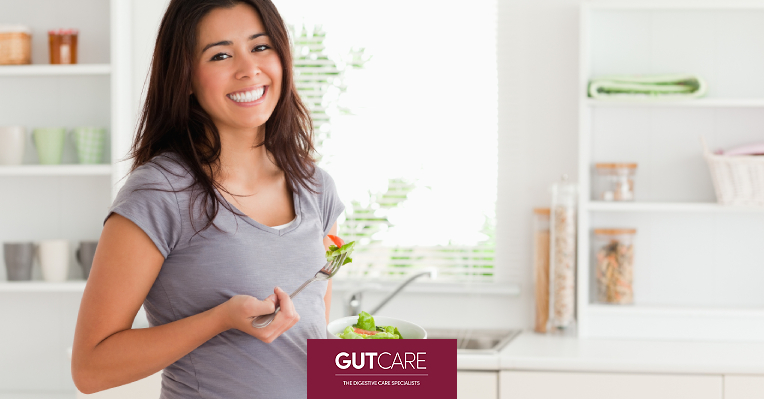Healthy Gut & Pregnancy: How Can I Maintain Both Together?

Our gut plays a significant role in our overall well-being more than what most imagine. They control a huge portion of our body functions and as such, optimal gut health is quintessential for every season of our life, more so during pregnancy.
Studies have revealed that pregnancy affects the gut microbiome in many ways as a natural response to adapting to a new life while growing within. Babies develop their immune system from their mothers, and their immunity correlates with the mother’s gut microbiome. The type of antibodies that are passed down to the baby from their mother also aids in protecting both parties from various illnesses.
Optimising the gut is a critical way of supporting the body during pregnancy, giving the baby the best possible start in life. In this article, we will explore how a healthy gut affects pregnancy and how to maintain one.
The correlation between the gut and pregnancy
Pregnancy causes several biological changes that can impact gut health, such as changes in the gut microbiome, increased risk of inflammation, increase in hormone production, and shift in immunity. Certain bacteria in the gut microbiome are decreased or increased accordingly to prepare the baby’s immune system.
For example, progesterone, a type of hormone, is found to boost the amount of bifidobacteria found in the gut, which is key to breaking down the sugars found in breast milk.
Pregnancy also changes the structure and size of the stomach, resulting in waste products and food travelling slowly through the gastrointestinal tract. This increased the occurrence of constipation, which is one of the most common conditions experienced during pregnancy.
Gut health also affects pregnancy-related symptoms, such as fatigue levels, mood swings, nutrient absorption, nausea, and constipation. A well-balanced gut microbiome will also, in turn, boost the immune system in both parties. In other words, having a well-balanced diet and keeping our gut happy and healthy can reduce any ill effects during pregnancy and improve the overall well-being of mother and child.
How does diet influence the gut microbiome?
During the initial couple of years, the gut microbiome is constantly taking shape, growing, and diversifying. What we consume in the early stages of our life affects the growth of our gut microbiome. Our gut microbiome thrives on a specific food, which benefits our overall health. Probiotics, such as fermented foods, contain beneficial, live bacteria that, when consumed, add to our existing gut microbiome.
Prebiotics feed the good bacteria, nourishing our body. Foods rich in prebiotics include green vegetables, legumes, onions, tomatoes, bananas, oil fish, and whole grains.
Both prebiotics and probiotics are vital during pregnancy, improving metabolic parameters, reducing the risk of high blood pressure, and building strong immunity for mother and child.
Why is it important to maintain gut health during pregnancy?
Maintaining gut health is crucial not only during pregnancy. However, it is even more vital during pregnancy as it affects not only the mother but also the unborn child. Ensuring a healthy and happy gut microbiome reduces the risk of developing pregnancy-related complications, such as infant allergies, autoimmune diseases, digestive disorders, preeclampsia, and gestational diabetes.
Even after giving birth, consuming prebiotics and probiotics can reduce GERD symptoms, prevent mastitis, boost energy levels, improve absorption of vitamin B12, speed up postpartum recovery, and boost breastfeeding.
Making sure we are consuming a gut-beneficial diet is one of the best ways to support the body optimally through the pregnancy period, encouraging better sleep, energy levels, mood, and anti-inflammation.
How do you maintain gut health during pregnancy?
1. Consume a gut-beneficial diet
As mentioned earlier, prebiotics and probiotics support gut health during pregnancy. On top of those two elements, consuming lots of omega-3s and fibres helps, too! From having a gut-beneficial breakfast to a well-balanced dinner, some of the essential nutrients you need to have during pregnancy include folate, iron, vitamin B12, vitamin A, calcium, vitamin C, and vitamin D.
2. Exercise regularly
Exercise boosts the gut diversity, mood, and energy level. Incorporate at least 20 to 30 minutes of light exercises, such as swimming or walking, into your daily routine. If your doctor approves, you can incorporate moderate exercises, such as cycling, jogging, yoga, or Pilates, too!
3. Manage stress levels
Pregnancy can be a stressful period for mothers, with many physical and emotional changes. You can practise techniques to help manage your emotions so that they do not affect you and your baby. For example, practising meditation techniques, reading, taking warm baths, and doing your favourite activities can reduce your stress level, influencing your gut system.
4. Ensure an adequate amount of quality sleep
Sleep is vital as it is the time when our body recovers and restores itself. Having an adequate amount of sleep (7 to 8 hours) is one thing; having quality, deep rest is another aspect.
5. Stay hydrated
Drinking plenty of water is vital for the overall health and well-being of both mother and child. Dehydration leads to a myriad of illnesses, lack of concentration, headaches, and flatulence.
Conclusion
Looking after your gut health is vital for your pregnant body, improving not only your sleep, digestion, energy, and mood but also your unborn child’s system. GUTCARE is a digestive care specialist in Singapore that specialises in everything gut-related, from vomiting symptoms and abdominal pain to IBS symptoms. Visit us to inquire about how you can improve your gut health.




